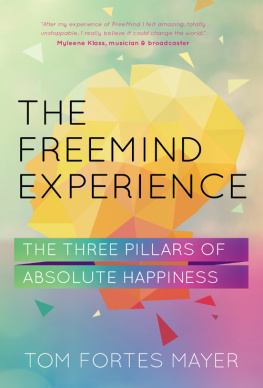Special thanks go to Norbert Freedman who first came up with the idea of a CIPS book series and to Fredric (Rick) Perlman who, as president of CIPS, brought it to the executive board. The boards approval led to the appointment of Meg Beaudoin as the series editor and the formation of a committee to discuss the structure, theme, and possible publisher for the series. I was delighted to be asked to work on this book, and I am grateful for Megs calm oversight. The recent appointment of Rick as series editor highlights the talent and dedication at CIPS that two such accomplished peopleMeg and Rickwould take on the job of series editor. I especially want to thank all the contributors to this book. Their talent, cooperation, and patience made my job as editor that much easier.
ABOUT THE EDITOR AND CONTRIBUTORS
Maxine Anderson, MD, FIPA, has been a psychoanalyst for over thirty-five years, training in both North America (Seattle in the Seventies) and London, England in the late Eighties. She is a training and supervising analyst in the Seattle Psychoanalytic Society and Institute, the Western Branch of the Canadian Psychoanalytic Society (Vancouver, BC), and a founding member and training analyst and supervising analyst of the Northwestern Psychoanalytic Society (Seattle), and a full member of the British Psychoanalytical Society. Recent interests involve Wilfred Bions work, especially his notions of learning from emotional experience and the forces for and against knowing and growth. Most recently she has begun to integrate the evolutionary perspective of primitive mental states into her psychoanalytic understandings. Maxine lives and works in Seattle.
Alan Bass, PhD, FIPA is a training analyst and faculty member of IPTAR, the New York Freudian Society, the National Psychological Association for Psychoanalysis, and is on the graduate faculty of the New School for Social Research. He is the author of Difference and Disavowal: The Trauma of Eros and Interpretation and Difference: The Strangeness of Care (both Stanford University Press) and many articles.
Joseph A. Cancelmo, PsyD, FIPA, was president of IPTAR (20082010), chair of the IPTAR board of directors, the IPTAR outside advisory board, training and supervising analyst (fellow) and faculty member of IPTAR. Previously, he served as coordinator of adult clinical services and outreach coordinator at IPTARs Clinical Center (ICC). He is a certified school and clinical psychologist, psychoanalyst, has written articles on diagnosis and clinical technique (most recently, The Role of the Transitional Realm as an Organizer of Analytic Process: Transitional Organizing Experience), and co-authored books on parents relationships with their child care providers (Child Care for Love or Money: A Guide to Navigating the Parent-Caregiver Relationship) and an edited book on the impact of 911 and worldwide trauma on the providers of clinical care (Terrorism and the Psychoanalytic Space: International Perspectives from Ground Zero). Dr Cancelmo is a graduate of IPTARs Adult Psychoanalytic Training Program and a graduate of the IPTAR Socio-Organizational Training Program in Organizational Consultation and Executive Coaching.
Paula L. Ellman, PhD, ABPP, FIPA, is a training and supervising analyst in the New York Freudian Society (NYFS) and the IPA. She is director of training of the New York Freudian Society and Washington DC Psychoanalytic Institute and a member of their permanent faculty. She is a board member of the Confederation of Independent Psychoanalytic Societies (CIPS). She has written and presented in the areas of female development, analytic listening, enactment, 9/11 terror, culture and psychoanalysis, and sadomasochism. She is co-editor (with Harriet Basseches and Nancy Goodman) of Battling the Life and Death Forces of Sadomasochism: Theoretical and Clinical Perspectives (Karnac, 2012). She has a private practice in psychotherapy and psychoanalysis in North Bethesda, Maryland and Washington, DC.
Allan Frosch, PhD, FIPA, is a training analyst and supervisor at the Institute for Psychoanalytic Research and Training (IPTAR) where he is also on the faculty. He is the author of a number of psychoanalytic articles and is twice past president of IPTAR, former dean of training, and former co-director of the IPTAR Clinical Center. Dr Frosch is also on the faculty at the Institute for Psychoanalytic Education (NYU Medical Center).
Nancy R. Goodman, PhD, FIPA, is a supervising and training analyst with the New York Freudian Society and the IPA. She has written papers and published in the areas of female development, analytic listening, Holocaust trauma and witnessing, film and psychoanalysis, 9/11 terror, the study of enactments, and sadomasochism. She is co-editor with Marilyn Meyers of a forthcoming volume: The Power of Witnessing: Reflections, Reverberations, and Traces of the Holocaust (Routledge, 2012). The book presents ideas about trauma and the way witnessing creates a living surround where symbolising can take place. It contains contributions by survivors, psychoanalysts, and scholars. Dr Goodman was director of training at the Washington DC Training Institute of the NYFS and is a member of the permanent faculty. She is chair of a teleconference group on enactment for CIPS, and has a full time psychoanalytic practice in Bethesda, MD.
Laurence J. Gould, PhD, FIPA, was a former director and professor of psychology in the Clinical Psychology Doctoral Program at the City University of New York. He was also a visiting professor and the founding co-director of the Program in Organizational Development and Consultation at Tel Aviv University, the founding editor of the journal Organisational & Social Dynamics, the director of the Socio-Analytic Training Program in Organizational Consultation and Executive Coaching at the Institute for Psychoanalytic Training and Research (IPTAR), and was the recipient of the American Psychological Associations Levinson Award for outstanding contributions to the theory and practice of organisational consultation. Dr. Gould had a private practice of psychoanalysis and organisational consultation in New York City.
Caron E. Harrang, LICSW, FIPA, is a clinical social worker and psychoanalyst working with infants, adolescents, and adults in Seattle, Washington. She teaches infant observation at the Northwestern Psychoanalytic Society. Caron has written on parent-infant psychotherapy, the relationship of aggression to original thought, and other topics related to psychoanalytic process and technique.
Richard Lasky, PhD, ABPP, FIPA, is associate dean and fellow at the Institute for Psychoanalytic Training and Research. He is clinical professor, training and supervising analyst, New York University Postdoctoral Program in Psychoanalysis and Psychotherapy. He is clinical and research associate and supervisor of psychotherapy, PhD Program in Clinical Psychology, City University of New York, and supervisor of psychotherapy, PsyD Program in Clinical and School Psychology, Pace University, New York.

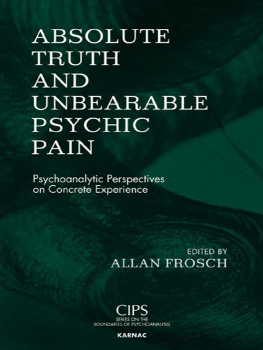


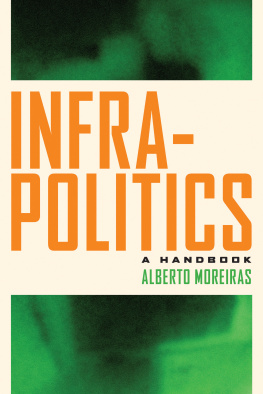
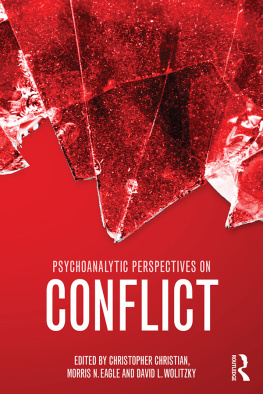
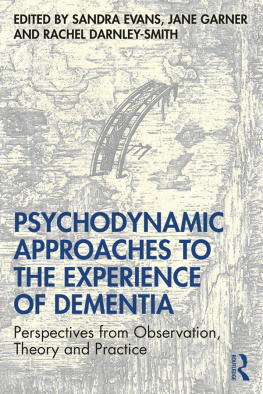
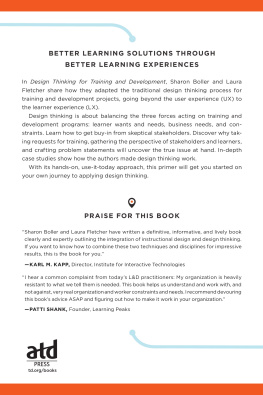


![SpeedyReads [Dell] - Summary of Switch On Your Brain; The Key To Peak Happiness, Thinking, And Health](/uploads/posts/book/117453/thumbs/speedyreads-dell-summary-of-switch-on-your.jpg)
